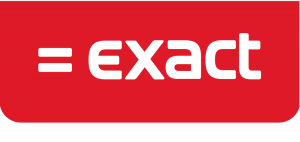
You already know the type. You are leading your strategy meeting, trying to figure out company-level strategy: digital, marketing, communications or other.
However, every time someone brings up a great idea, in jumps your in-house ‘Devil’s Advocate’ with an annoying ‘Yes, BUT …’
Agh. It’s so much easier (and productive) to work with the ‘Guardian Angel’ — one who elegantly supports progress with a ‘Yes, AND …’ Someone who knows how to build on ideas rather than put fire to them.
Current conventional thinking in management and leadership consulting is that the ‘Yes, AND’ people are your friends and the ‘Yes, BUT’ people are a pain in the ass, and of very little business value.
However, before you start coaching the ‘BUT’ out of your strategy team, it’s worth taking another look.
Angels and Devils in organisations
Liz Strauss echoes the common current perspective on the ‘Yes, AND’ people:
“The position of Guardian Angel is inherently positive. The role is to find and fill holes in the proposed idea. Arguing for the possibility of what might work, while checking for risk, leads to dialogue that builds and moulds ideas into useful realities.”
So a ‘Guardian Angel’ is typically seen as someone who builds on ideas, looks to add value to the business problem at hand — and is, above all, constructive.
A Devil’s Advocate, on the other hand, is commonly perceived to argue the toss for the sake of it, and points out flaws in the plan at every opportunity. In short:
“The Guardian Angel strengthens ideas by adding value to them … [while] … The Devil’s Advocate breaks ideas. No value is added.”
Hold on a sec.
Sure, you don’t add value if you break a good idea.
But what if it’s a bad idea that was broken?
Dialectics and decision making
Sounds odd, but the best strategic decision making is not based on ‘dialogue’. And that’s not just semantics. ‘Dialogue’ is a conversation among people with different points of view on issues of mutual concern. But dialogue doesn’t have the goal to complete a specific task or persuade others to accept their position.
Dialectics, however, is a different process. Dialectics privileges rationality as the proper means for the discovery of a ‘truthful’ strategy.
A dialectic approach means equally judging both sides of any argument. And arguing rationally from both those points of view to arrive at a consensual ‘truth’. That’s a different kettle of fish. And, I believe, the best approach for strategic thinking.
To do that you need both Guardian Angels and Devil’s advocates.
The pros and cons of ‘Yes, AND’
In my experience, the Guardian Angels’ biggest strength is in arguing ‘for’. That’s the very reason why these folks use the ‘Yes, AND’ phrase. It’s a nurturing, supportive headset that has many benefits such as plugging holes in ideas, moving things forwards and keeping ideas flowing.
But it also has drawbacks in strategic decision making.
‘Yes, AND’ makes it very difficult to challenge underlying beliefs or assumptions. It often perpetuates any number of confirmation biases (our tendency to privilege information that confirms our own perceptions).
As a result, at least in my experience, Guardian Angels are rarely originators of innovative strategic options. However, these folks are of fantastic value in strategic planning.
The pros and cons of ‘Yes, BUT’
A Devil’s advocate’s biggest strength is in arguing ‘against’. Their role: to resist, to point out flaws, risks and yes, alternatives. The ‘Yes, BUT’ mentality is a naturally challenging one whose biggest benefit is in closing old strategic doors and, rather wonderfully, opening new ones.
If you have one of these on your team, actively encourage them to say ‘Yes, BUT!’ These folks will ultimately help you feel more comfortable with the full strategic decision-making process as, thanks to them, you’ll feel you’ve explored every possibility.
Give them half a chance and they will also help identify and uncover any previously unrecognized assumptions in your company. So stopping, or at least uncovering, any confirmation bias.
By shooting down many good strategies with a well-timed ‘Yes, BUT’, these folks also increase both the number and quality of strategic alternatives. Why? ‘Yes, BUT’ is a great catalyst for new ideas as it inspires your team to counter the Devil’s argumentation.
Devil’s Advocates are of most value when you are sat in those initial strategy meetings trying to figure out company-level strategy — when you want to move towards a vision of what your future might be; and explore the possibilities.
Which brings us back to where we started.
The next time your in-house ‘Devil’s Advocate’ jumps on an idea with a ‘Yes, BUT’, don’t think, ‘I must coach them to be more constructive.’ Instead, embrace the conflict. They’re the ones most likely to be the catalyst for your most successful strategies.
PS Just before I finished this post I found this very cool old report by Charles R. Schwenk on the Use of Devil’s Advocates in Strategic Decision Making from 1984. And there’s more too if you care to Google him. And there was me thinking I was being all original. At least the research supports the argument! Enjoy!
Updated: 11 April 2017














